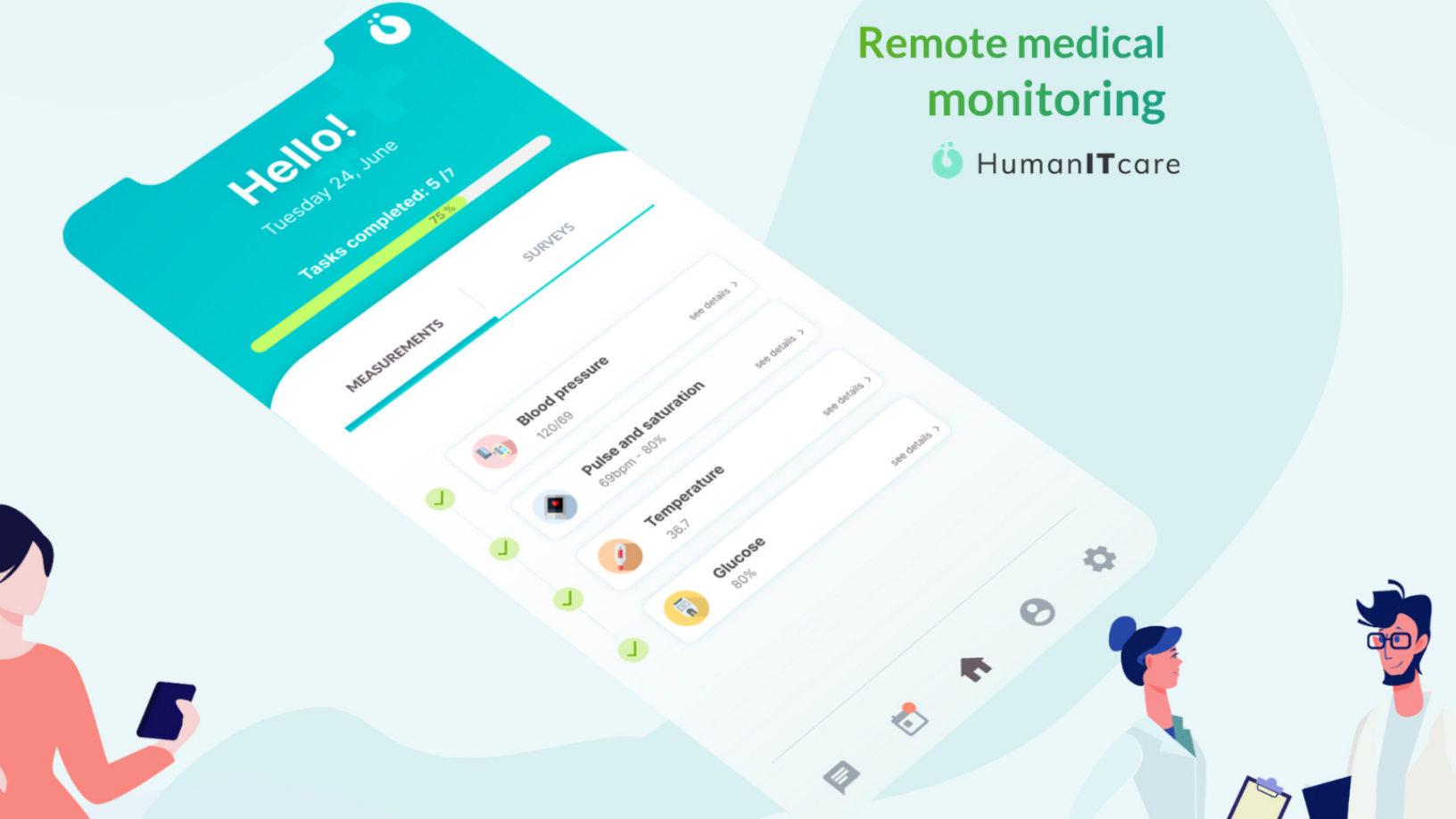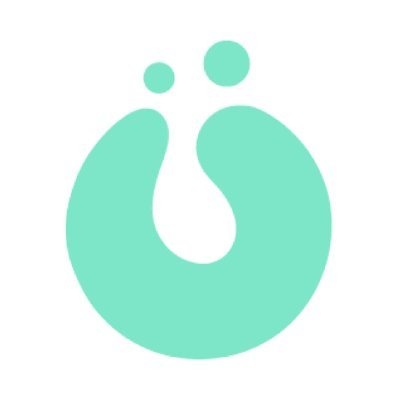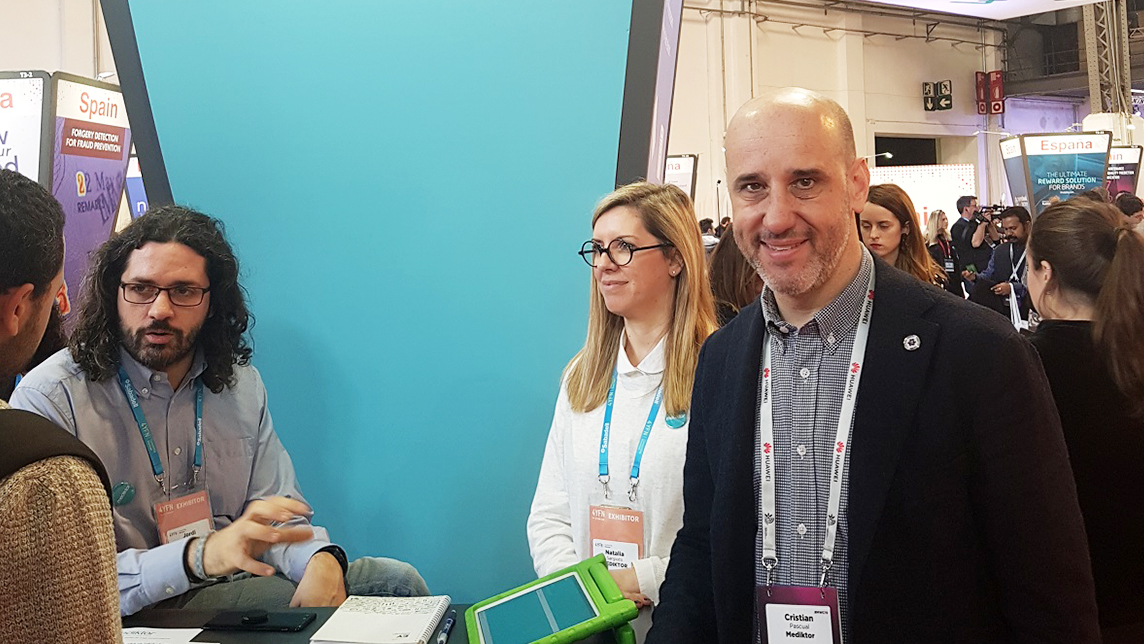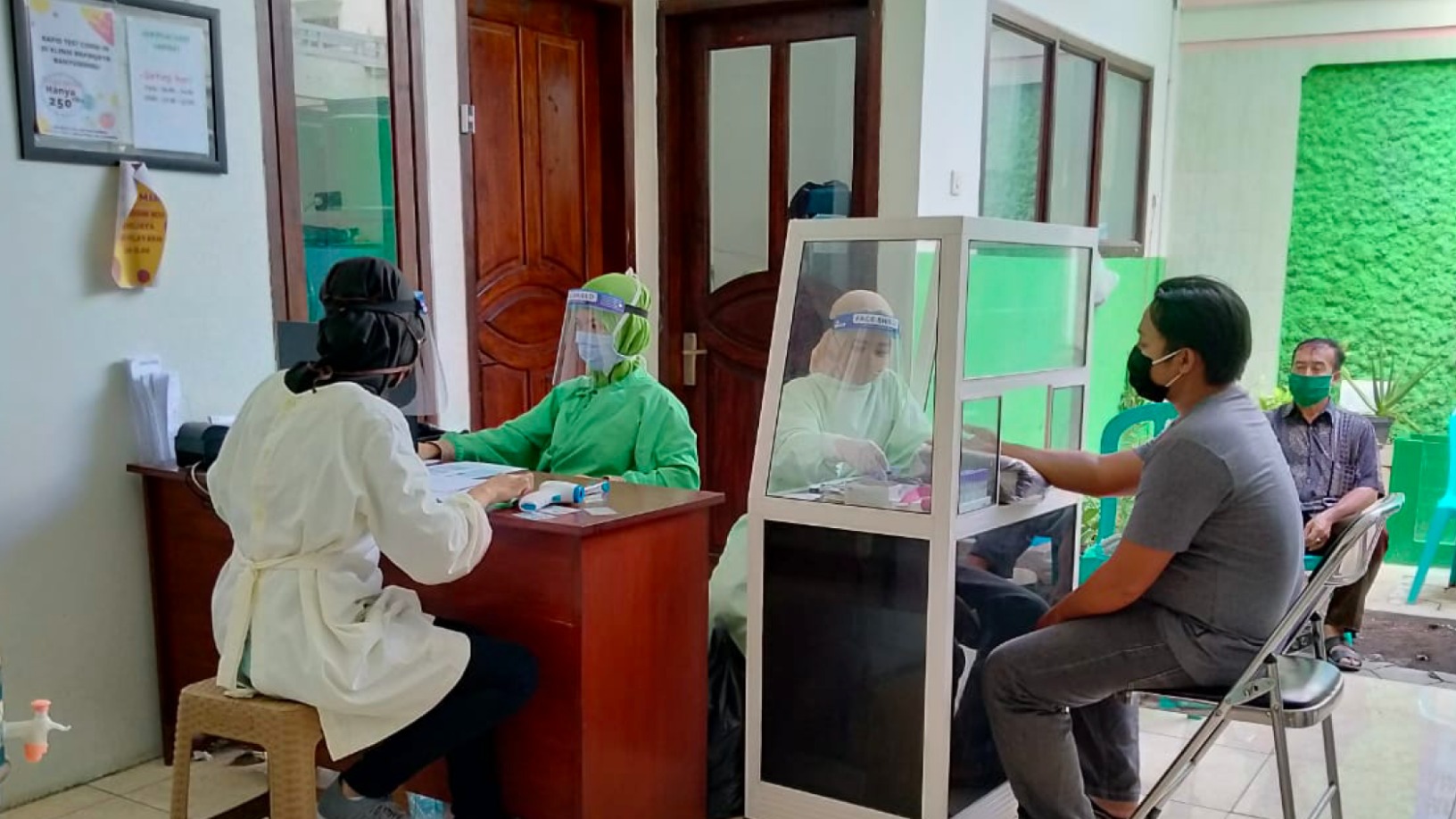When Covid-19 hit Spain in March 2020, telemedicine platform HumanITcare had only three clients. By September, the AI-powered healthtech was used by over 1,000 patients from 20 hospital clients including public health institutions and EU-funded projects.
Turnover exceeded €1m in 2020, with the startup’s revenues expected to increase ten-fold to €10.5m by 2024 banking on the rapid digital transformation of healthcare services at home and abroad. Founded in 2017 by CEO Núria Pastor and CTO Unai Sánchez, HumanITcare has so far validated its multichannel platform with more than 3,000 users. Over 30 hospitals are now using its SaaS solutions and have benefited from cost reductions of up to 40% for clinical follow-ups.
The SaaS platform provides 24/7 remote access to healthcare and big data services. The Plug and Play (PnP) solutions can be integrated into the client’s systems and electronic health records. Patients can also register their symptoms online for doctors and researchers to monitor them remotely to identify signs of health deterioration. Patients and doctors can communicate directly using the app.
In June 2020, soon after the onset of the pandemic, Pastor told media that the company was able to position itself as a key player in national digital health within just three months and turnover in the second quarter rose by 30% over the previous quarter. To date, the company has been contacted by more than 15 private investment funds interested in supporting HumanITcare’s scale-up and expansion.
Since 2017, HumanITcare has been supported by the EU-funded EIT Health, initially through the EIT Health Bootcamp Launch Lab. The startup joined EIT Health Headstart accelerator in 2018 and EIT Health E-Boat Bootcamp and EIT Health Bridgehead Europe in 2019. With no VC backing to date, the bootstrapped startup has received €500,000 funding from the European Commission and the Center for Industrial Technological Development (CDTI) of the Spanish Ministry of Science and Innovation.
Data-driven healthcare
The global pandemic has increasingly shifted the healthcare model toward a hybrid of in-person and remote patient assistance services. As a result, the demand for telemedicine is helping to boost the commercial growth of healthtech platforms like HumanITcare, said Pastor.
Using a B2B model based on licensing customized SaaS solutions to clients like hospitals, clinical centers and health insurance companies, HumanITcare has also offered its services to pharmaceutical companies, clinical research organizations and academic research centers. The company is also entering the wellness and fitness market, having secured a commercial agreement with Fitbit, the smartwatches and bracelets company that was recently acquired by Google.
HumanITcare is also designed to gather anonymous data from patients to detect patterns in treatments that can be used for clinical trials. It also facilitates remote medical tracking and assistance by collecting patients’ information from connected devices and sensors to enable doctors to remotely diagnose and treat their patients. Commonly used connected devices include CE-marked and FDA-approved medical devices such as blood pressure monitors, pulse oximeters, thermometers, smart scales, ECG equipment and smartwatches. The AI-powered platform can analyze the data collated to predict a patient’s health outcomes and assist doctors to optimize clinical decisions.
Besides Covid-telemedicine, the remote patient monitoring system has also been used for the management of chronic conditions like mental health, heart failure, diabetes, COPD, chronic cardiovascular diseases and oncology.
Vall d’Hebron Hospital in Barcelona was the first to use HumanITcare, deploying physiological sensors to monitor the stress levels of caregivers of children with neurological disorders. The platform was also used at the Hospital Clínic of Barcelona for a remote study of patients affected by anxiety and alcohol abuse disorders.
In January 2020, following a collaboration with Valencian accelerator and VC fund Lanzadera, HumanITcare was able to expand and provide its services to two additional hospitals in the Valencian community to monitor patients with chronic diseases.
HumanITcare has also expanded across Europe, providing digital health solutions to Braga Hospital in Portugal, Academical Hospital of Maastrich in the Netherlands and Heildelberg University Hospital in Germany. The company is planning to work with Germany’s public health system in 2021. However, Pastor acknowledged that this will be a challenge in view of the stringent regulatory and evaluation requirements for digital solutions to be approved for use in the public health sector.
Telemed boom post-Covid
When the Spanish government declared a state of emergency in March 2020 due to the pandemic, hospitals across the country experienced unprecedented demand for medical assistance. Remote healthcare solutions had to be implemented to cope with the crisis.
HumanITcare immediately provided users with free access to its platform for a few months to ease the workload of local hospitals and to speed up remote assistance. By using the platform to track the locations of the patients, public health institutions were also able to identify and monitor Covid hotspots in different parts of the city.
Within one month, the rapid adoption of telemedicine had helped to reduce face-to-face hospital and doctor visits in Spain by 50–80%, according to a news report in April 2020.
Even pre-Covid, the global telemedicine market for 2019 was estimated to be worth $45.5bn and forecast to grow at 19.3% CAGR from 2020 to 2026. Globally, telehealth startups raised $3.6bn in VC funding during the first quarter of 2020. The upsurge in chronic diseases, technological advancements, higher smartphone penetration and the need for optimized processes and cost management in hospitals are major factors driving the demand for digital health solutions.
The Covid-19 pandemic enabled healthtechs like HumanITcare to play a key role in the digital transformation of public health services. "In 2007, the [government] brought in several telemedicine projects, however there was no implementation in place," Pastor said. “Covid-19 made it necessary to treat patients remotely; it also helped doctors to realize that [telemedicine] alternatives actually work well.”














